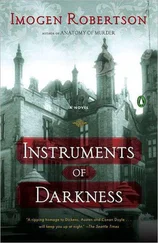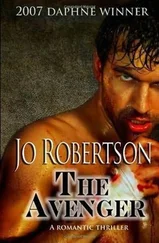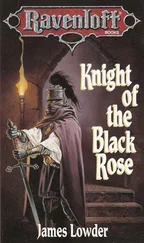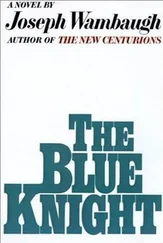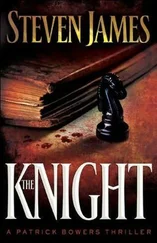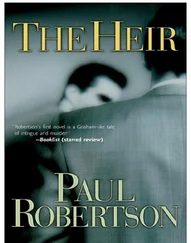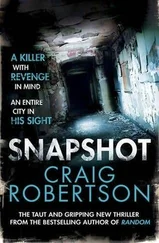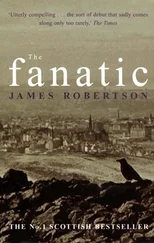‘You’d not come out for Charles, if he came again?’
‘No, and nor would you and well you know it. I’d not offer my sword to a Stewart now, even if there were one worthy of it. There’s too much to lose.’ They looked again at the wealth creation going on below. ‘Half a lifetime, James, as you say. We were boys then, both of us. Just the eighteen months between us, but I, you’ll mind, was sixteen and thus old enough to die for a cause. Not now. Now I am old enough not to die for a cause. There is only one cause – one’s own self and one’s family –’
‘Which you don’t yet have –’
‘You forget Mama and our sisters. One’s self, one’s family, and the prosperity of these. Nothing else matters.’
‘And the relief of passion,’ said James. ‘That matters to me a great deal.’
They remounted and rode downhill, threading in and out of the shade until the road levelled out, then struck off towards the mill. Wilson, the bookkeeper, was managing operations. There were other white overseers in the fields, but the three of them were the only white men in the mill – the distiller, boilerman, packers, coopers and other skilled workers were all black. The place was a clammy hive of activity. The noise and heat and sweet stench of the crushed cane were oppressive and heady. After a few minutes the Wedderburns left Wilson and his men to it, and rode back to the coolness of the house.
Within a fortnight, the rest of the cane was in, cut and crushed. From the mill’s boilers vast quantities of liquid had been run off to make low wines for the slaves and rum for the mother country; the remaining juice had been cooled, allowed to granulate, and packed into hogsheads. The fields lay slashed and brown, ready to be planted for the next season. The field gangs were exhausted, the mill slaves hardly less so. Crop Over: a holiday for all of them. From their hut village down on the plain, the noise of their singing and drumming drifted up.
The Wedderburns were tolerant of it: the sounds, hesitating almost deferentially at the open windows, enhanced their own sense of superiority, of being proprietors . John imagined a big house in Scotland where the lowing of cattle beside a bright splashing burn might have the same effect. Such a house would be far more substantial and imposing than the wood, clay and brick edifice he had here, grand though this was in comparison with the accommodations of his white overseers, let alone the slaves’ huts. There would be a tree-lined avenue, perhaps, leading up to the porticoed entrance; stone columns and balconies instead of the wooden porch; enormous, roaring fireplaces in carpeted drawing room and oak-panelled dining room. Not these sweating uneven walls that were home to a multitude of scurrying beetles, cockroaches and green lizards. On evenings when he was by himself, John Wedderburn walked the rooms of that imagined house: sometimes he walked them alone; sometimes with a graceful, lily-white lady on his arm.
For Crop Over he had granted the slaves a few goats to slaughter, and made presents of some bolts of Lancashire coloured cotton for the women to turn into gaudy holiday clothes – a gesture, he was pleased to think, that far exceeded the annual suit of working clothes island law obliged him to provide each slave. Not that anyone ever checked – which made his provision still nobler. Who was going to check? His neighbours? The magistrates from Savanna? And who, more to the point, was going to complain?
He had worked out a few years ago that if he could keep one in every three acres of the estate under cane, and from them produce around a ton of sugar for each slave, at current prices he would achieve a very acceptable profit. Another third of the land he devoted to animal grazing and provision-growing for the house and workforce, and the final portion – mostly on the hills – was woodland, from which he was gradually extracting some excellent timber. This year, by a combination of working the blacks hard and storm-free weather, the sugar crop had been excellent. Although his calculations were not complete, he estimated it at nearly one and a half tons per slave. Furthermore, Britain and France were at war, struggling for territorial control of North America and economic mastery of India, and occasionally attacking some of each other’s smaller Caribbean islands. The war had driven the London sugar price up to thirty-five shillings a hundredweight. He had every reason to feel thankful to Providence, and therefore generous to his workforce.
James was over from Bluecastle for an extended dinner. Their younger brothers Peter and Alexander were also there. Peter was twenty-four, Sandy a year younger. They divided their time between the two estates, depending on where they were most needed. Neither of them had responded well to the climate when they first arrived, but Peter had gradually acquired some strength, and his natural enthusiasm had helped him overcome bouts of illness. He was not particularly clever or imaginative, but went along with whatever plans John and James proposed. John thought that in many ways these were the best characteristics for surviving in the West Indies.
Sandy was a different case. He had been sick as a dog on the passage out, and swore he would never get in a boat again. Six years on, he was still weak and liable to come down with fever at any time. John had considered sending him back home but the thought of the journey appalled Sandy so much that he was stirred to try to keep up with Peter. The strain and anxiety never really left his face, however, and it did not take much to throw him into a depression. James, though he indulged Sandy when he was trying to be manful, was also less patient than John when he was not, and as a result Sandy spent as much time as he could at Glen Isla, where fewer demands were made of him.
George Kinloch, now a successful planter in his own right, was expected for dinner. Davie Fyfe, the thriving doctor, also now in the west, had come in the company of Charles Hodge, a Savanna merchant who had supplied most of the furnishings for the house. In the absence of a wife John Wedderburn had depended on Mr Hodge to fit him out from the shipments that came in from London and Boston. Hodge, he understood, depended in turn on Mrs Hodge’s taste, and judging by the sumptuous decor of their own town house on Great George Street she knew what she liked. But she was also sensible: she realised that an unmarried planter was looking for comfort, not necessarily extravagance; for practicality, but then again not austerity; that such a man was not over concerned with fashion, but equally did not wish his friends to think him a primitive. So she had taught her husband how to navigate these tricky waters, cultivate the confidence of the planters, encourage them to spend wisely yet often, and thus bring the Hodges’ own money-making vessel safely into port.
The only slaves at Glen Isla not yet celebrating Crop Over were the domestics: the cooks, maids, butler and footman required to prepare, serve and remove the long parade of dishes their master and his guests would work their way through over the duration of a three-hour dinner. But as their daily tasks were much lighter than those of the field and mill workers, they could hardly expect to be released so readily. There were, in any case, not that many of them. Three maids, Mary, Peach and Bess, doubled up as kitchen hands helping Naomi the cook. Two men, Jacob and Julius, acted as butler and footman, but of this pair it was not quite certain where the duties of one ended and of the other began.
Unlike some of the really fabulously wealthy planters, for whom such details were a reflection of their prestige, John Wedderburn did not care much about this casual attitude to job demarcation. It did not seem important in a place that, even though he had spent his entire adult life there, he still regarded as only a temporary home. When he went back to Scotland it would be different. He would want to do things right there: in Scotland, doing things right would matter. And with this in mind he intended, some day soon, to begin to train up a slave to take home with him as his personal servant. Not Jacob or Julius: they were too set in their ways. Someone younger, more pliant, who could look after his clothes and toilet, be a faithful companion, a memento of his Jamaican days to be admired by neighbours, friends and guests.
Читать дальше



